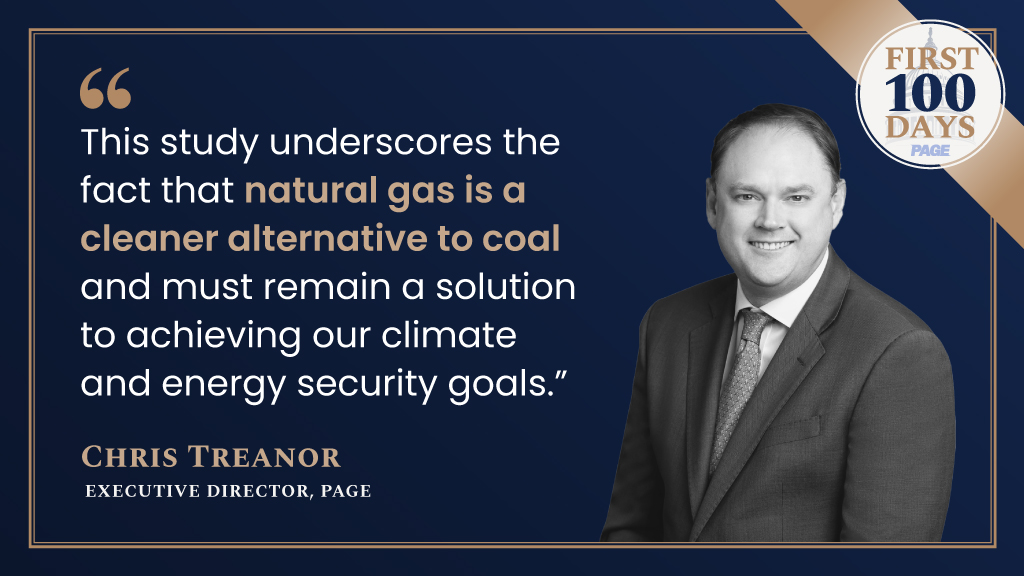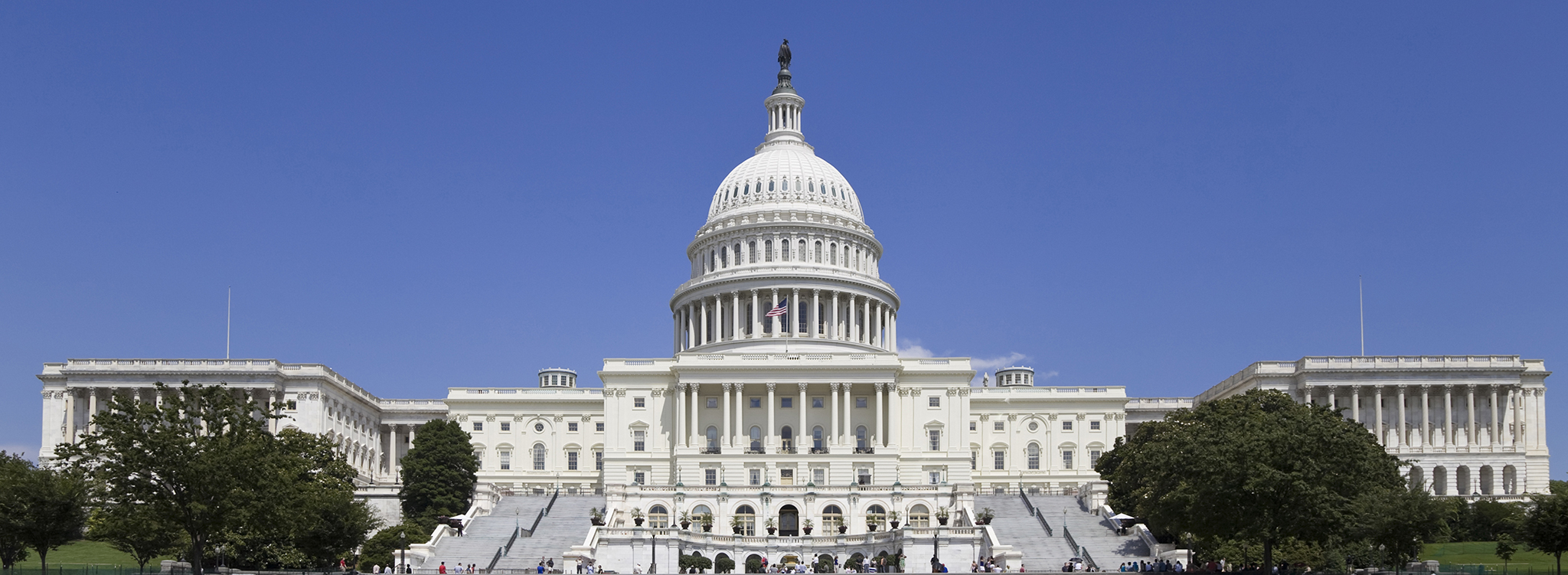The Trump Administration and Congress have an opportunity to increase LNG exports, pass permitting reform and address methane emissions
The results of the 2024 U.S. elections demonstrate that support for natural gas production was a winning issue. A large majority of voters support a steady energy transition using all available options, including natural gas. Ultimately, elected officials of both parties who expressed alignment with these energy priorities were rewarded by voters. Following President Donald Trump’s inauguration and the start of the 119th Congress, lawmakers have an opportunity to expand affordable and reliable natural gas’ role as an energy security and climate solution.
The Partnership to Address Global Emissions (PAGE) looks forward to working with the new Administration and Congress on critical energy and climate issues. This includes increasing liquified natural gas (LNG) exports, addressing methane emissions and passing meaningful permitting reform.
Increasing LNG Exports
The U.S. has emerged as a leading exporter of LNG, driven by technological advancement and a global shift towards cleaner energy sources. The positive climate impact of U.S. LNG has been tremendous, with a recent study by ICF International confirming that U.S. LNG exports produced fewer greenhouse gas emissions compared to coal in 2022.

However, the Biden Administration temporarily paused approvals of new LNG exports in January 2024 while they studied whether exports are in the public interest. This left our international partners questioning the U.S.’s commitment to delivering energy security to protect them from Russian aggression, which is in direct conflict with our push for foreign aid to support our allies’ sovereignty. While the flawed study still needs to be finalized, the Trump Administration has thankfully reversed the pause and provided certainty to our allies that they’ll have access to a more secure and affordable energy supply that helps reduce global emissions and builds a stronger domestic economy. The Trump Administration and Congress can build on this progress by continuing to prioritize LNG exports as part of a broader energy security and decarbonization strategy.
Passing Permitting Reform
Yet, we cannot meet the growing energy demand without permitting reform. Our nation’s energy infrastructure is at capacity, and significant infrastructure investments are needed to unleash all energy resources, including natural gas and renewables. Natural gas demand has grown 43% since 2013, while infrastructure to deliver it has only increased 25%, and storage delivery capacity has only grown 2%. This trend has resulted in higher prices and reliability challenges, even though abundant and affordable supplies remain available.
The current permitting process for energy projects is lengthy and complex, often involving multiple federal and state agencies and taking up to a decade to complete. Streamlining this process is essential to expediting project approvals and reducing bureaucratic delays.
Previous legislative efforts have aimed to simplify the permitting process without compromising environmental standards. However, they have not resulted in the scale of progression needed to achieve our goals. PAGE calls on the new Congress to pass comprehensive permitting reform that includes targeted improvements to the Natural Gas Act and integration of state reviews into the existing Federal Energy Regulatory Commission (FERC) process. This will untangle bureaucratic bottlenecks preventing American energy from reaching consumers.
Reducing Methane Emissions
While natural gas is itself a clean-burning energy resource, it is important that the supply chain delivering that resource is operated in a way that also limits methane emissions. To achieve our shared goals, we need to reduce these potent emissions and the energy sector has the largest potential for a rapid reduction.
The good news is that U.S. oil and gas methane emissions are on the decline. PAGE and others in the natural gas industry have taken extraordinary measures to reduce methane emissions by implementing operational changes and expanding the use of innovative technologies – making U.S. LNG one of the lowest-intensity natural gas sources in the world. Exporting more U.S. natural gas abroad is an important next step to reduce emissions globally, especially in countries like China, whose coal dependency is responsible for 15% of the world’s methane emissions.
We encourage reasonable methane recommendations from policymakers to improve emissions measurement by investing in advanced detection, monitoring and measurement technologies and practices to continue contributing to global emissions reduction goals which will keep U.S. LNG competitive on a global scale. In early 2024, the EU adopted stringent methane regulations for all oil, gas and coal imports, creating an economic opportunity for energy producing nations who comply with these standards. By fostering efforts that help U.S. LNG meet Europe’s regulations, the Trump Administration can unlock the economic benefits and jobs associated with producing and shipping LNG, while bolstering energy security here and abroad.
The Bottom Line
Voters have made clear that they favor energy policies that prioritize affordability and reliability, and the new Administration and Congress have an opportunity to address these issues as they begin their terms this month. PAGE is eager to engage with policymakers on solutions to increase U.S. natural gas production, make our energies cleaner, and pass legislation that speeds up the permitting process. By embracing innovation and collaboration, the U.S. can continue to play a pivotal energy leadership role, delivering responsible LNG to global markets.

